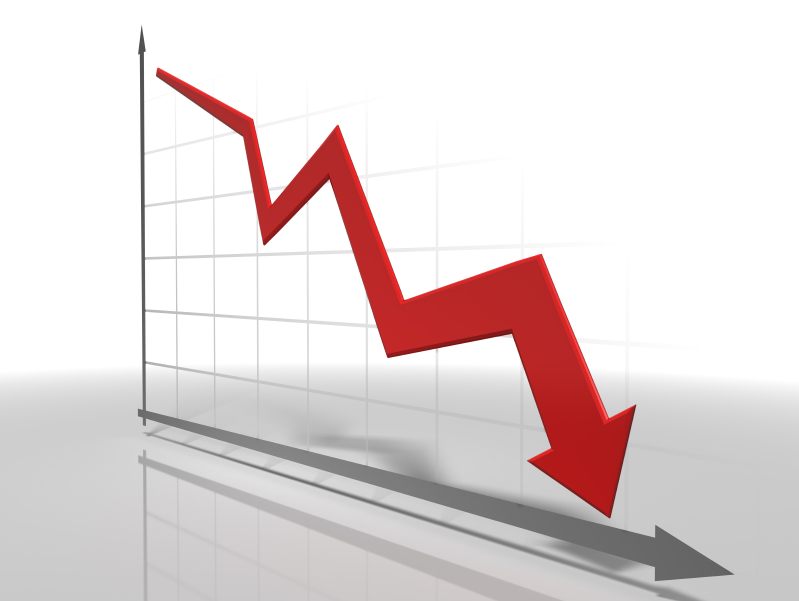Once upon a time, many in the West were fond of quoting the proverb, “Give a man a fish and you feed him for a day. Teach a man to fish and you feed him for a lifetime.” A biblical admonition also comes to mind “without a vision, the people perish.” Both proverbs contrast the idea of a life with immediate gratification versus long term goals.
Likewise, once upon a time, American companies spent a considerable amount of money in research and development. These businesses thought in terms of years into the future and what they could contribute to the betterment of their fellow man and make a profit by providing goods and services that made our lives better.
Sadly this is no longer the case. Modern corporations are only concerned with hitting their numbers for the next quarterly report. Should they miss the estimates of Wall Street there is financial hell to pay. No company has any real investment in or vision of the future. Business is only concerned with immediate cash flow.
I like technology but I get frustrated by the number of projects that get prototyped and cancelled because the idea can’t be monetized in the next quarter or two. Anything beyond that window of time is deemed risky and not viable for investment.
Here’s a few examples:
Microsoft
Microsoft has been toying with foldable phones and tablets for at least five years but every project they attempted has been cancelled. All they have to show for their efforts is a large portfolio of patents. Microsoft is playing the 90-day game and anything that might be on a longer time horizon is likely to get cut as a risky investment.
Apple
Apple under Steve Jobs wasn’t an innovator in hardware. Jobs took existing stuff, tweaked it and found ways of marketing it to the masses. In a sense, he sold “the sizzle”. Jobs could look at an idea and see a future benefit worth investing in and bring it to fruition. Under Tim Cook, Apple is playing the 90-day game like everyone else. Apple has ceased being a leader in technology, they can’t risk being wrong about the next big thing.
Google
Google too is cutting long term R & D.
Google admits that its hardware business is not profitable enough to accommodate a large number of employees and therefore has decided to trim the fat. Google told dozens of employees working on its hardware division to find new jobs.
An internal source close to Business Insider told that Google is currently going through “roadmap cutbacks” and hence the decision. This will have a massive impact on Google’s hardware business as BI reports that projects on which the company was actively working on are now cancelled.
It’s more like the search giant wants to put a full stop to its long-term projects that were in development.
Everywhere you turn, it’s the same story. Long term projects are toxic in today’s business environment and nobody wants to spend on them. Instead, there is constant pressure to cut, trim, and reduce both employees and products. This is not just free market forces at work, something else is afoot.
But why?
Two big reasons come to mind.
First, Wall Street is the only place that most people can put their money and get a return on their investment. Wall Street is geared around getting an immediate return on dividends each quarter. The measure of a company is cash flow to investors. The way to attract and maintain investors is via immediate return. The so called “Blue Chip Stocks” don’t really exist anymore. The Wall Street logic is this: no return, no investors, then no company.
Second is the high burden of government. Companies must take baby steps to keep from getting crushed by all the rules and regulations that they are required to follow. This makes them risk averse. Making a profit is no longer enough motivation to pursue a project. If the return is not immediate and drastic, the project will never see the light of day. This stifles innovation. In a sense, corporations are trading security for freedom.
This 90-day cycle mentality is destructive to the market but in order for businesses to survive, they are forced into this attitude. People instinctively know this is true but often don’t perceive why.
Elon Musk seems to transcend this lethargy of innovation that people sense in the marketplace. The attraction of Musk is that he is unencumbered by the baggage that besets others. He talks of what should be and rejects the status quo. The problem is that Musk’s business model can’t succeed on an even playing field, he needs the heavy hand of government to intervene on his behalf with taxpayer money in the form of investments from public retirement funds, tax breaks, and rebates to consumers. However, government can’t really pick winners and losers in the market, when it tries it fails. Socialism always loses at the point where promises far surpass declining resources and productivity.
The 90-day cycle is an interesting phenomenon to watch but only in the same way that people will invariably slow down to stare at a traffic accident. It is an aberration to the normal way of markets and finance. The problem is that the longer this continues, the less that people remember or perceive the deviance from the ideal of what the market should be.
In our current environment, both business owners and consumers have lowered expectations of market capability. The farther from free markets that we get the better that the lie of socialism looks.
The business cycle has been reduced to the minimal form necessary for survival. The 90-day cycle is the sum total of management concern. Thought of the future is hard to envision when you don’t know if you’ll be here tomorrow. First world companies with third world values are a harbinger of bad tidings for all of us.
